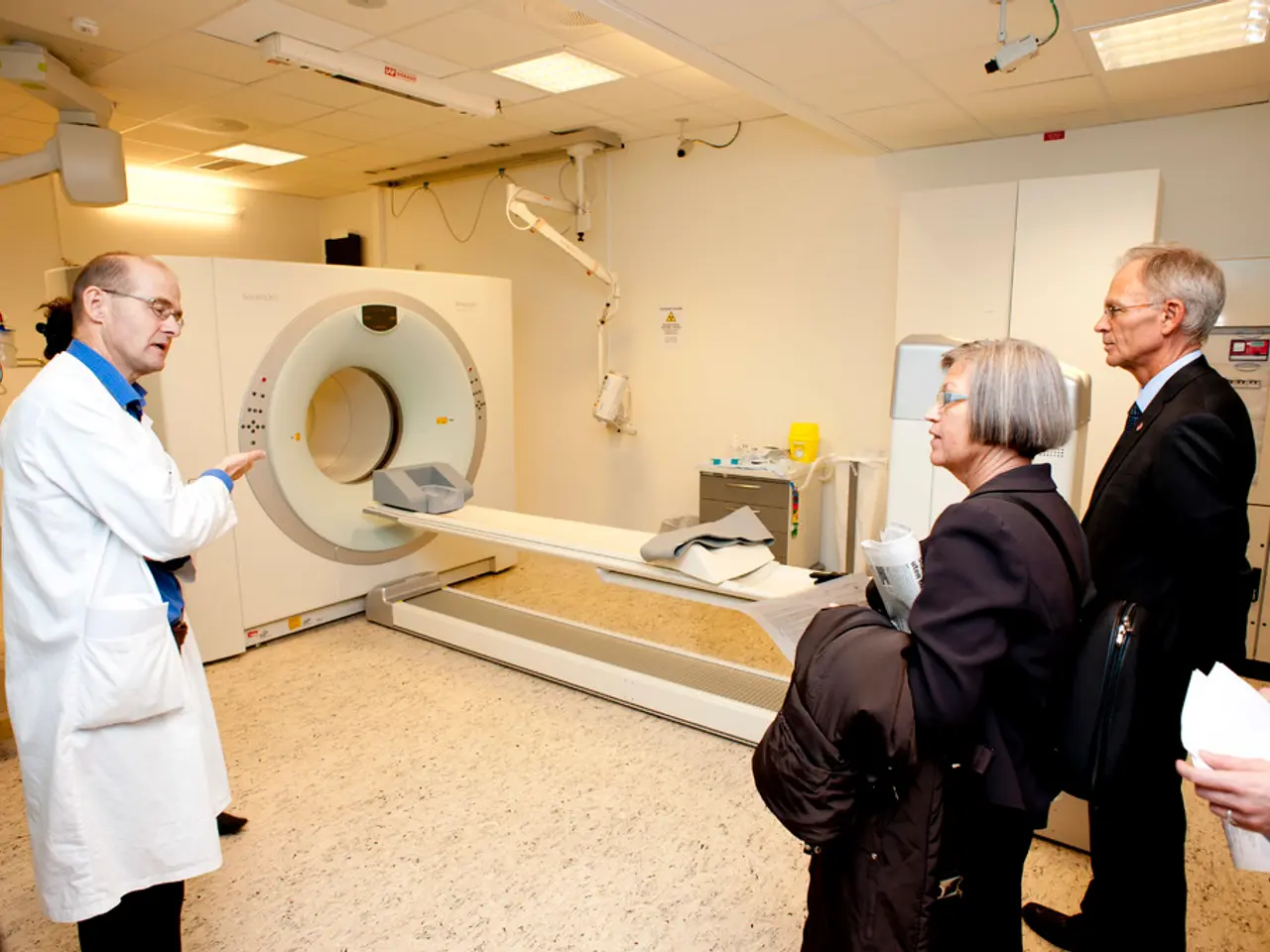Diagnosing Early: Screening for Colorectal Cancer Starting at Age 45 Already Yields Positive Outcomes
Lowering the Colorectal Cancer Screening Age: A Proactive Approach to Improving Survival Rates
In a significant shift aimed at combating the rising incidence of colorectal cancer among younger adults, the recommended age for the first screening test has been lowered from 50 to 45 years. This change, primarily driven by a noticeable increase in colorectal cancer cases among people under 50 since the mid-1990s, was endorsed by expert groups such as the American Cancer Society (ACS) in 2018 and the U.S. Preventive Services Task Force (USPSTF) in 2021.
The primary objective of this change is to detect colorectal cancer earlier in younger adults, thereby improving survival rates by catching cancers in their early stages when they are more treatable. The strategy seems to be bearing fruit, as recent studies published in 2025 have confirmed. Screening among 45-49-year-olds has increased significantly, by about 62% from 2019 to 2023, and more early-stage cancers are now being diagnosed in this group.
Experts involved in the studies have hailed these findings as "promising news" and noted that such early detection "means young lives are being saved." The data, collected over about 15 years since the initial concerns in the mid-2000s and the guideline changes around 2018-2021, show that the strategy is indeed effective.
In older populations over 50, colorectal cancer incidence has decreased, largely due to regular screenings removing precancerous polyps. The trend of rising cancer cases in the younger group aged 45-49 has started to reverse, with earlier screenings helping to catch cancers earlier. Researchers stress that screening is the most effective intervention, potentially reducing the risk of death from colorectal cancer by about 50% when done timely and regularly.
In conclusion, the change in the screening age was driven by epidemiological trends revealing an increase in colorectal cancer among younger adults and the demonstrated effectiveness of earlier screening in improving early cancer detection and survival outcomes over recent years. This proactive approach is proving to be a crucial step in the fight against colorectal cancer.
- Health-and-wellness initiatives that focus on medical-conditions like colorectal cancer can benefit from science and technology advancements to develop more effective therapies-and-treatments, such as the proactive approach of lowering the screening age for colorectal cancer, which aims to catch cancers in earlier stages in young adult populations.
- Recent health-related studies have demonstrated that timely and regular screenings, as part of health-and-wellness programs, can potentially reduce the risk of death from colorectal cancer by about 50%, highlighting their significance in early cancer detection and enhancing survival rates.
- While science has helped lower the recommended age for colorectal cancer screenings from 50 to 45 years, ongoing research is crucial for understanding and addressing the various medical-conditions, including cancer, that affect the health of younger adults, leading to further improvements in health-and-wellness strategies.




